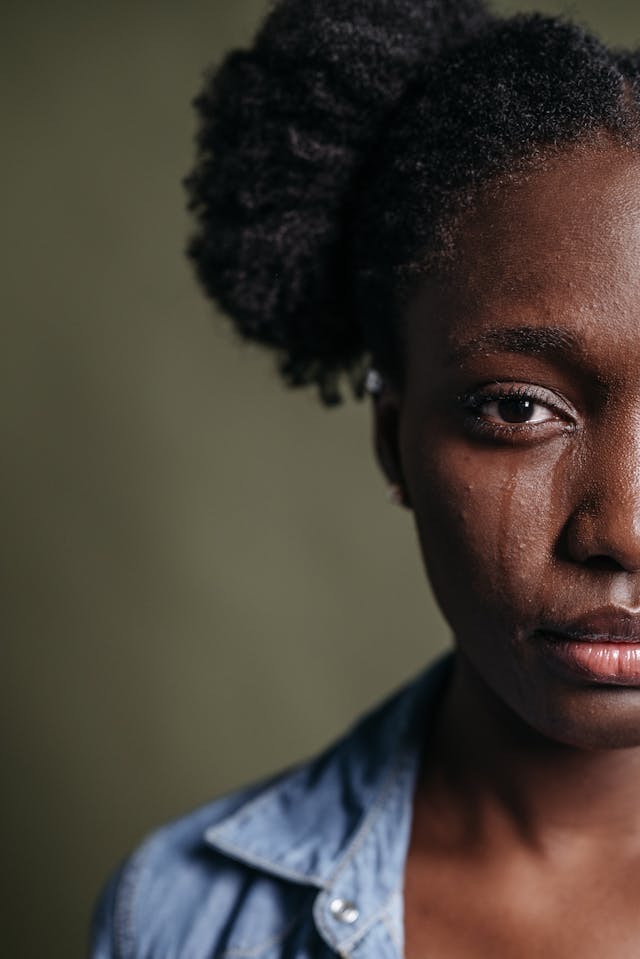
It would be a mistake to think that the low self-worth many ADHDers live with comes from our wiring. There is nothing defective in our brains to cause us to feel this way. The truth is that we are often unseen, incorrectly judged, and misunderstood, and it is this treatment that lies at the heart of our low self-esteem.

From childhood, many of us are told that we are lazy, not fulfilling our potential, careless and even disruptive. We may pick up these signals directly or indirectly, but however we receive them, we internalise them.
Teachers may scold us for not engaging with our work, drifting off, or forgetting homework. Our parents may express frustration with us, and they may compare us unfavourably with our siblings.
What everyone misses is that we are trying hard, working with what we have and what we know, to meet the expectations of others. Over time, this mismatch between intention and outcome results in shame as we conclude, “I must be the problem.”
I cannot overstate the impact RSD has had on my personal and professional life. What frustrates me is that it’s almost impossible to put into words what it feels like. Phrases like “being stabbed in the back and having the knife twisted” seem so cliched, but that is just what it feels like. What RSD isn’t is a weakness or a psychological disorder. It’s a neurological feature of ADHD that magnifies social pain to an almost unbearable level. The pain of RSD can be so intense that it can lead people to consider taking their own lives. That’s how excruciatingly painful and utterly overwhelming RSD can be.
In terms of self-worth, or self-esteem, because we have internalised all these misunderstandings, judgements, and rejections, we end up feeling that they are proof that there’s something wrong with us. Or that we’re unlikable or unworthy. Due to this, even the smallest negative feedback can be crushing.
I have lived the majority of my life convinced that I am damaged goods thanks to RSD.
We ADHDers can hyperfocus on something for hours, forgetting to eat or even to go to the loo, but then crash or freeze on the next task, because it’s dull or of little interest to us. We are also apt to avoid tasks that are emotionally loaded. To teachers, bosses, parents, and partners, this can appear inconsistent, often resulting in blame and criticism, which reinforces our already low opinion of ourselves. Once again, we internalise the criticisms and ask ourselves what others are asking of us: “If I can do it sometimes, why can’t I do it always?”

The net result of all the above is that our self-talk becomes harmful and destructive. We turn the negative tropes of others into our own voice and beat ourselves up more powerfully than anyone else could. Our inner dialogue becomes punitive, scolding ourselves for missing deadlines, forgetting to put the bins out, procrastinating, or being fixated on a computer game and failing to write our college assignment.
We deny our brains the compassion they need to thrive.
Throughout my life, I have been told that I am overly emotional, that I feel things too deeply. I remember my father writing “In all things be a MAN, my son,” on a card, and I took this as missing the mark completely.
What I didn’t know then, but I know now, is that ADHD involves differences in the limbic system (which regulates emotion) and in dopamine and norepinephrine pathways (which affect motivation, attention, and reward). This means feelings can rise faster, peak higher, and take longer to calm.
It’s not a case of me or any ADHDer being over-emotional; it’s that our brains process stimulation and emotional data more vividly.
Research suggests that many ADHDers have lower thresholds for emotional and sensory input. This means that we literally feel more: joy, injustice, rejection, awe, and so much more, because our neural circuits amplify input rather than filtering it out.
Functional MRI studies show that ADHD and autistic individuals can have heightened activation in regions related to social awareness and empathy (like the anterior cingulate cortex). Neurologically, many of us are wired for deeper emotional resonance, even if executive-function challenges make expressing or managing it more difficult.
We’re wired to feel. Our ability to feel isn’t a sign of brokenness or a damaged psyche; our brains are designed this way.
Because of the above, it’s easy for ADHDers to externalise our self-worth. That is, we gain a sense of validity not from innate values, but from performance and outcomes. There has to be some visible result for us to feel worthy. We become people-pleasers and rescuers. Work success, compliments, likes, job titles and friendships become the currency of value.
We have learned that the ADHD brain tends to process emotional stimuli quickly and intensely. When something feels wrong, for example, tension in a room, conflict between people, or an injustice, the limbic system lights up as if it’s an emergency. That’s the start of catastrophising: the brain goes straight from “something’s off” to “everything is collapsing.” And that shift is happening at a rapid pace. It can feel like trying to keep up with a racing car on a bicycle.
In terms of self-worth, it’s so important to remember that this is not deliberate drama. It’s fast-tracked alarm circuitry. Our nervous systems register danger before our reasoning brain can moderate it. The horse has bolted, and we’re playing catch-up.
Neurotypical brains often insert a brief space between feeling and action, providing an opportunity to assess. ADHD brains have less consistent access to that “pause button.” When urgency hits, action follows immediately: trying to fix, rescue, mediate, or soothe, regardless of personal cost.
ADHDers often jump into problem-solving long before others have even recognised there’s a problem.
Our intentions are sound, driven by strong moral and social values, but the outcome may be less than positive, further damaging our self-esteem.

ADHDers feel the pain of others as if it's our own. There’s no barrier; it’s a case of hyper-emotional absorption. Because of this, we can’t bear to see someone struggle. There’s a dual process at work here; we want to alleviate the suffering of the other person, but we also want to ease the suffering we are experiencing.
While this is beautiful in origin, it can blur boundaries: we start taking responsibility for emotions that aren’t ours to hold.
If the person, group, or organisation you tried to help becomes frustrated or rejects the help, it lands as a deep and agonising wound. The brain then tries harder next time, overcompensating,
“If I can just fix it right, they’ll be okay and I’ll be okay.”
That’s how well-meaning rescuing can become self-sacrificing or even counterproductive, further eroding one's self-worth.
For many ADHDers, imagining the worst feels like staying one step ahead of chaos. The brain attempts to predict and prevent pain. Unfortunately, it also floods the nervous system with cortisol and narrows our perspective, meaning we act out of panic rather than discernment, sometimes worsening the situation we intended to save.

Micro-anchors of Worth: Each day, name one small, non-performance reason you are enough. This might be: “I am worthy because I try.” Keep a tiny card of these and read one when you wake.
Values check, not outcome check: Write three values you want to live by. For any recent win or failure, ask: Did I act in line with those values? If yes, that matters regardless of the outcome.
The tiny evidence log: Carry a note on your phone titled “Evidence of Worth.” Add one line when someone is kind to you, smiles at you, or you show up, or you are brave. When self-doubt hits, read three lines.
Self-compassion script for RSD hits: When you feel crushed by criticism, say: “That hurts. Feeling this shows I care. I am not defined by this single moment.” Pause, breathe, then act from curiosity rather than collapse.
Reframe failure as information, not identity: After setbacks, jot three facts: what happened, what you learned, what you’ll try differently. Avoid moralising language.
Practice the Pause: When your body says “urgent!”, take a single breath and silently ask: “Whose feeling is this?”
Regulate first, respond second: Any response born from calm will be more effective than one born from alarm.
Let discomfort exist: Someone else’s struggle doesn’t mean you’ve failed to help; it might be their necessary learning ground.
Redefine “help”: instead of rescuing, think of witnessing, supporting, and empowering.
Use micro-self-soothing: Ground yourself through breath, keeping your feet on the floor and your hand on your heart. It tells the brain: “We’re safe; no emergency.”
What is wonderful about this is that, with awareness and gentle retraining of our responses, the same wiring can become a gift: deep empathy guided by mindful restraint, rather than reactive rescue. This supports our own self-esteem and helps others as well.